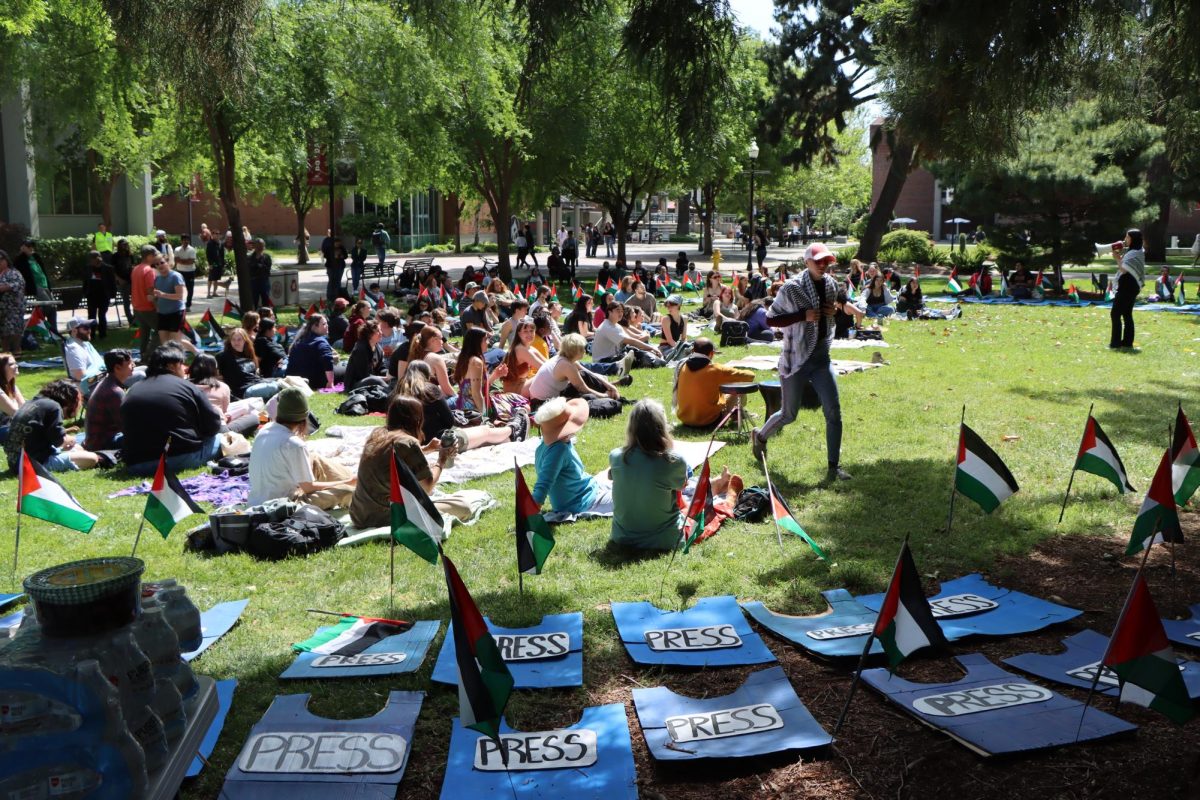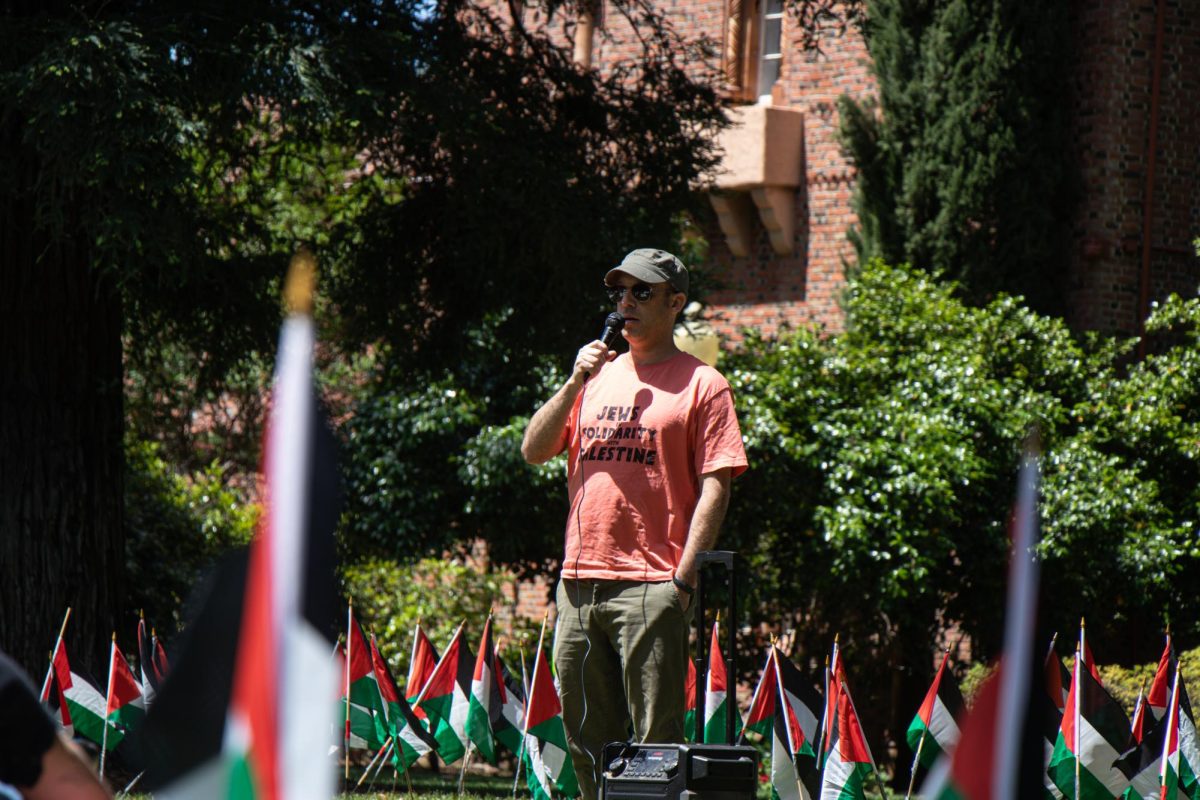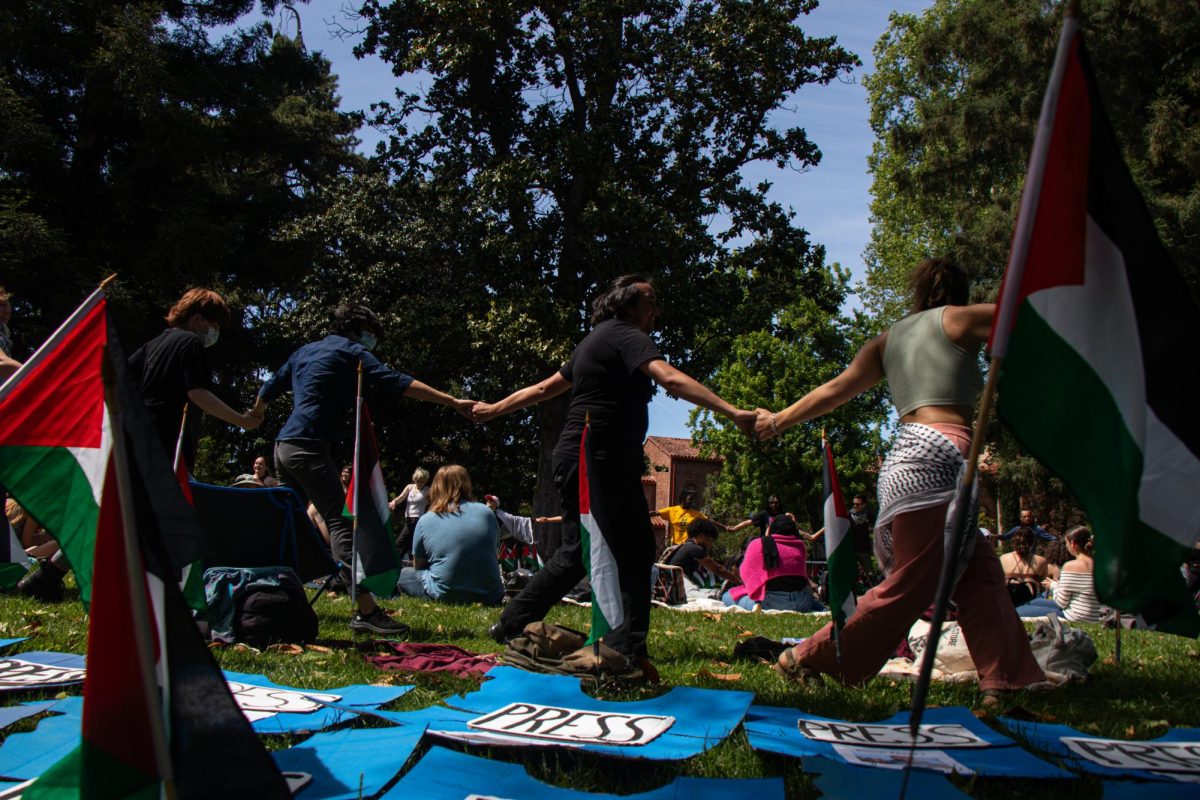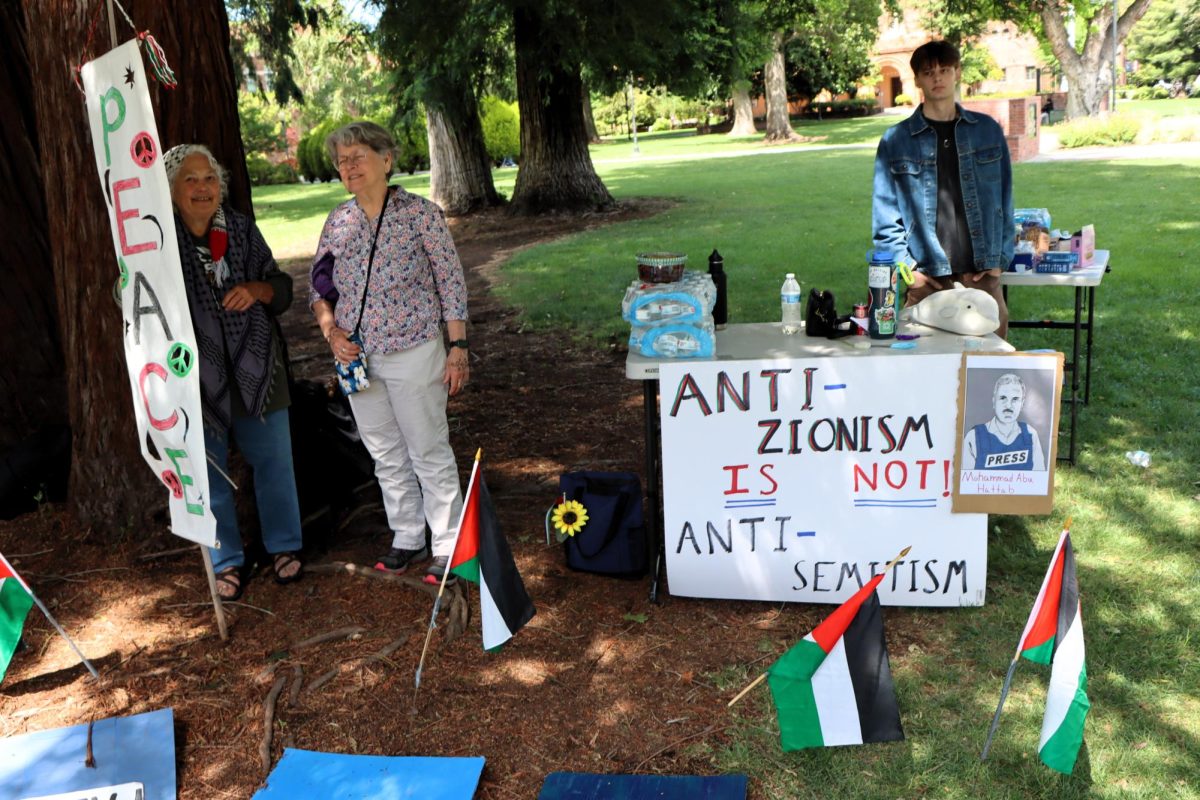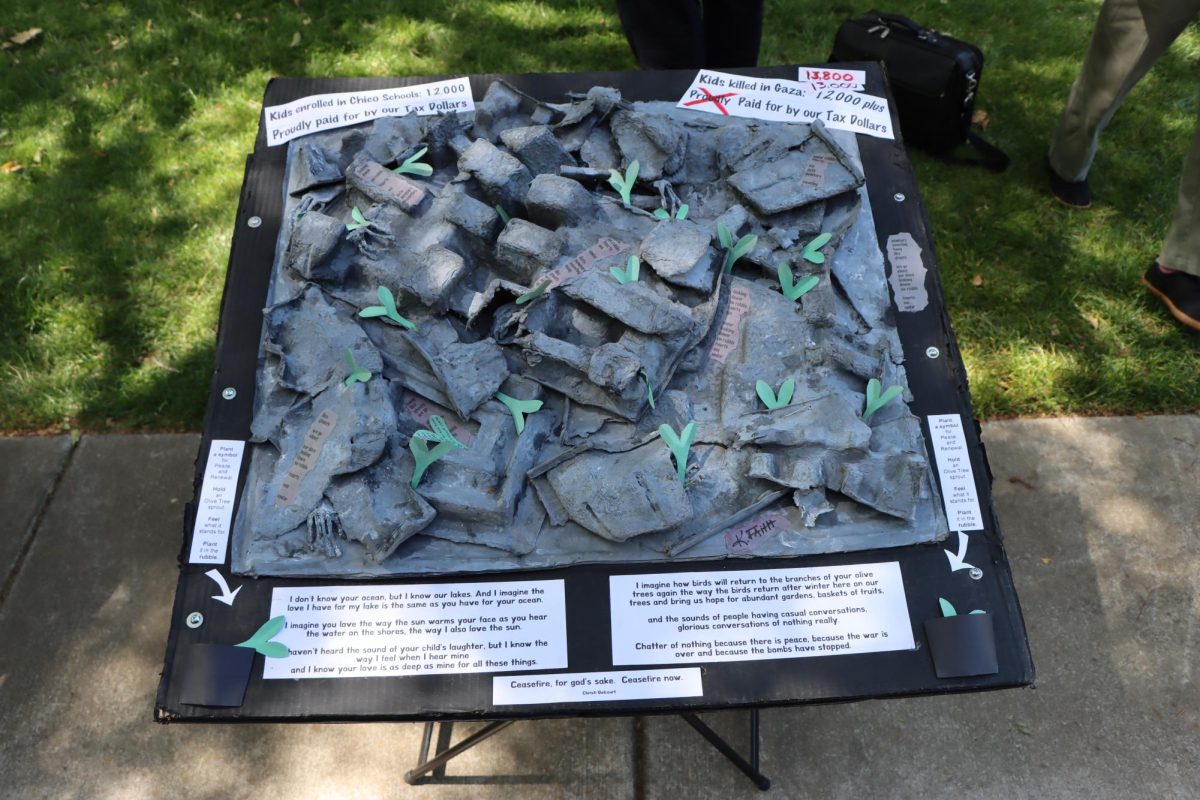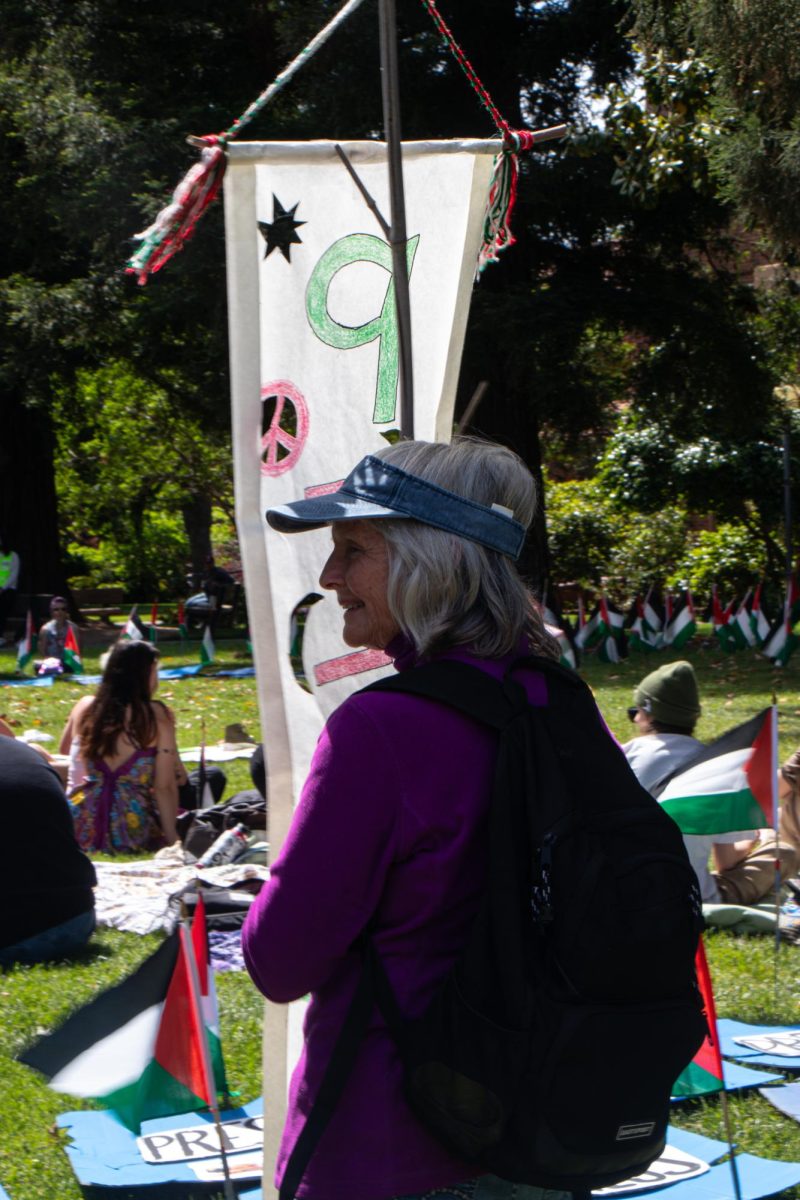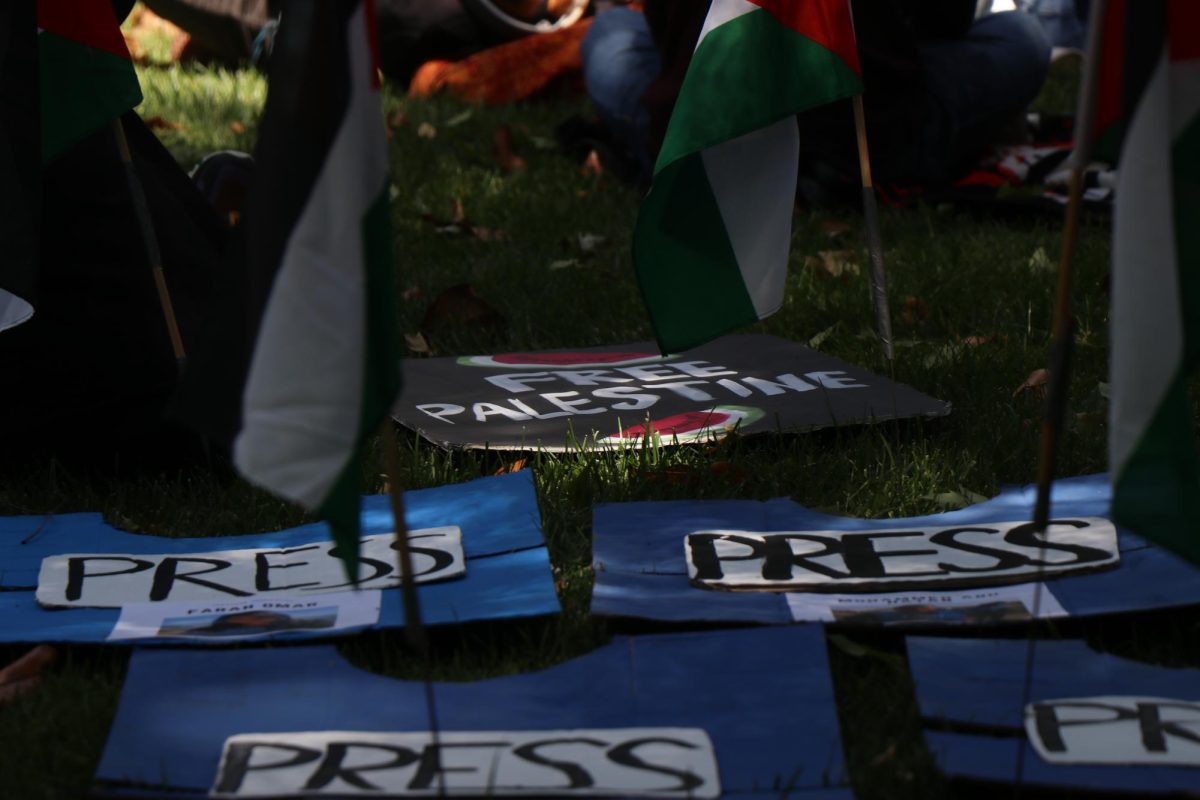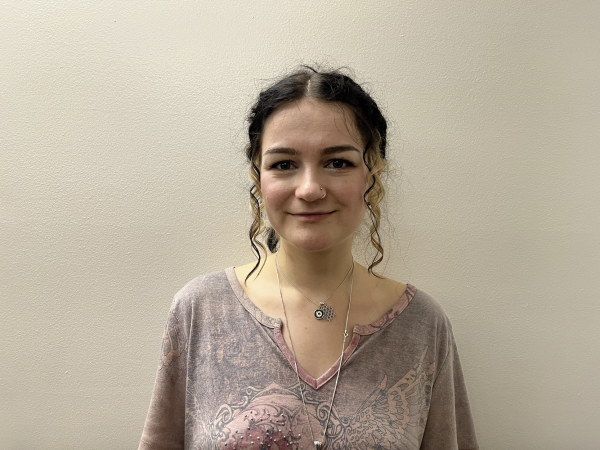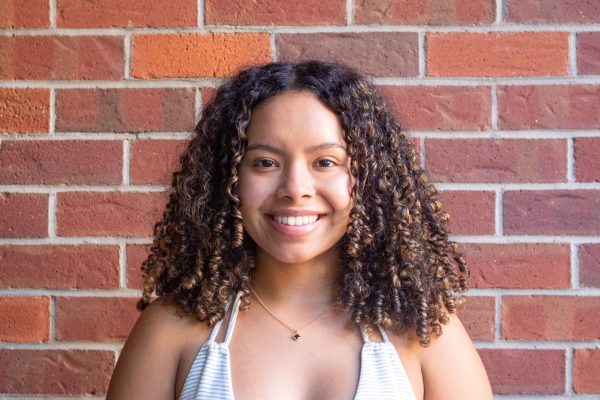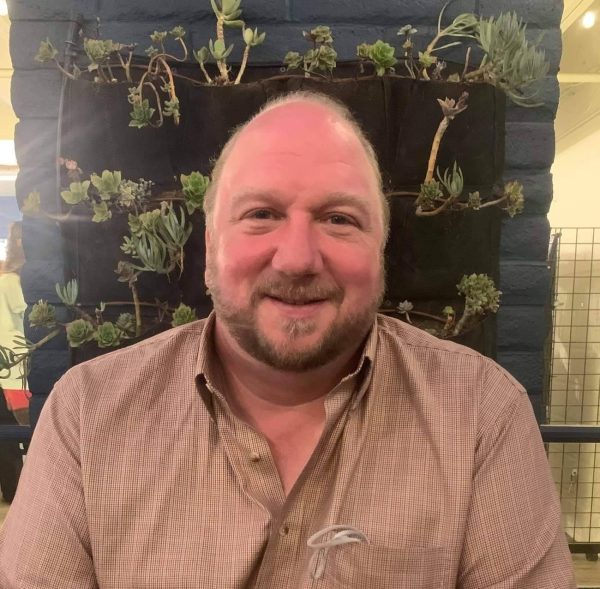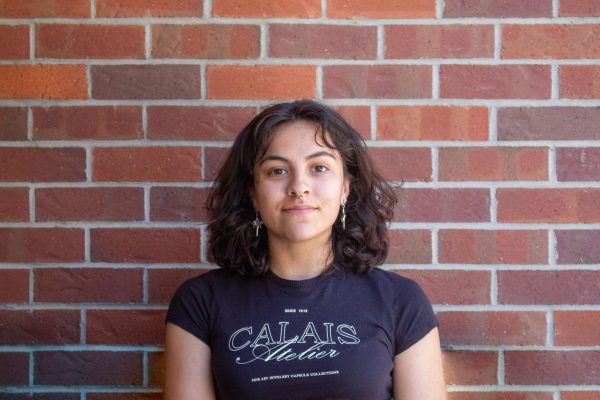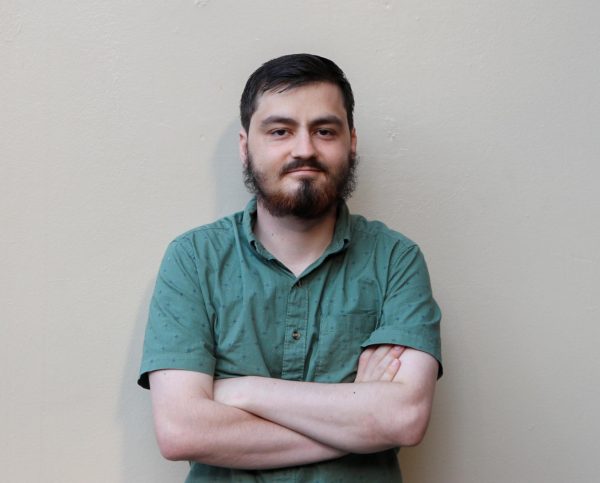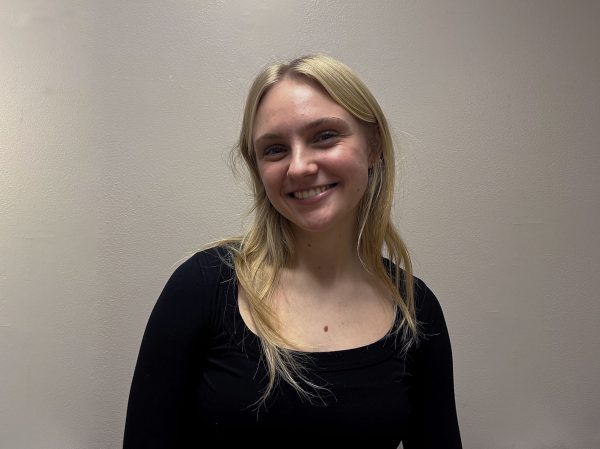Students for Justice in Palestine held a “Walkout for Palestine” on Monday encouraging students and community members to walk out of school or work to show their support for a ceasefire in Gaza.
The event featured multiple speakers, dancing and prayer. Among the speakers were history professor Eran Zelnik and public health professor Lindsay Briggs.
Briggs spoke about the history of activism at Chico State and paralleled the current pro-Palestine protests on campuses across the nation to the Vietnam War protests in the 1970s.
At many campuses across the U.S., including Sacramento State, protestors are setting up encampments. When asked by students if Chico State would participate in the encampments, Briggs said she didn’t think there was enough support.
U.S. schools Columbia and University of Southern California canceled their graduations due to large-scale protests on their campuses. Students like Cheryl Kohtz are worried this could happen at Chico State.
“I’m just frustrated. I’m working hard to finish up projects for the semester, and I see these protests going on around the country, and schools canceling classes and graduations,” Kohtz said. “I’d be pissed if I was about to graduate and a protest got it canceled.”
History professor Eran Zelnik spoke about being a Jew from Israel and his service in the Israeli Defense Forces. He said he was “ashamed” of his service.
“I hope that this will get them [Chico State] to divest. Chico State in general is part of the CSU system that has a lot of money invested in the stock market. As part of the investment in the stock market, it’s invested in many companies that have a vested interest in Israel,” Zelnik said.
Attending the event was Ziad Elchatle, a Chico community member who is Palestinian. Elchatle has a cousin in Gaza and said it is very difficult to get in contact with him but that he knows he is alive.
“It restores my faith in humanity,” Elchatle said about the protest.
Student Cassidy Corboline said she came to the event with her friends, “to show our solidarity instead of being silent.”
SJP had a booth with a petition and a list of their demands:
- “Disclose all institutional expenditures, including direct and indirect investments, stocks, bonds, hedge funds, and more.
- Declare the occupation, colonization, and ethnic cleansing of the Palestinian people as well as the U.S.-Israeli genocide in Gaza, illegal and indefensible.
- Divest from companies and partnerships that actively participate in the occupation, colonization, and ethnic cleansing of the Palestinian people. This includes financial and academic partnerships with institutions and programs in Israel, as well as institutional relationships with companies participating in the genocide in Gaza.
- Defend all student activism and students, especially Palestinian, Muslim and Arab students, who have faced racist and Islamophobic harassment, ensuring full amnesty for protesting students.”
At around 1:45 p.m., protestors were encouraged to come to the front and learn dabke — a popular line dance in Palestine and surrounding countries.
After a quick tutorial of the dance from a protest organizer, participants joined hands and danced, kicking their legs and stomping their feet in a circle around the protest. The crowd clapped along as students got into the rhythm of the dance.
While the music blasted through the speakers, Elchatle played along on his doumbek, a type of drum.
Amongst the crowd were students, community members of all ages and two henna artists sitting on the grass and benches of the far left side of Kendall lawn.
City Council member Addison Winslow attended the protest and said the university is where these demonstrations and conversations should be happening.
“What’s going on in Palestine is a genocide … I think it’s important for the United States and for institutions in the United States to take a stand on that,” Winslow said.
For months, demonstrators have been attending city council meetings and requesting Chico adopt its own ceasefire resolution. It has been denied each time, with Mayor Andrew Coolidge saying this issue is not in the purview of the city.
“… the local leadership doesn’t support the underdog in any conflict and really, it does not support Palestinians,” Winslow said.“I can’t say I’ve heard everybody’s opinion, but that’s the sense that I get.”
Another student who attended the event, Chris Navarrete, said, “I want to be on the right side of history.”
Many protestors wore keffiyehs. One protester, Chico community member Sam Barber, made a statement with his outfit.
The message “Anti-Zionism ≠ Anti-Semitism” was written across the back of his shirt.
“The reason that I wanted to put this on a shirt is because Congress just passed a new law that is basically an attempt to criminalize anyone who’s critical of Israel, critical of colonization, critical of Zionism and white supremacy,” he said, “I just think it’s kind of a travesty because antisemitism is a real problem and has been a problem historically. To attempt to conflate anything speaking out against what Israel’s doing right now as antisemitism is really disgusting. It just isn’t right.”
A small art installation by artist Kathy Faith was near the booths. Faith had previously responded to a request for art advocating for a ceasefire.
The piece portrays the rubble caused by the conflict, with an interactive element in which viewers can place an olive sprout within the debris.
“It was a way to represent that that’s what needs to happen there. We need a ceasefire, peace and rebuilding,” Faith said. “And then also, everyone all over the world sees an olive branch as peace.”
The piece comprised recycled cardboard, packaging material and construction paper with a coat of gray paint.
The piece was framed with poems, instructions for the olive sprout placement and statistics detailing the number of children killed in Gaza framed the piece.
Rabbi Mendy Zwiebel of the Chabad Jewish Center had a booth open during the protest between Meriam Library and the Science Building to support Jewish students on campus.
“I know many students reached out,” he said. “They feel broken, they feel threatened, they feel like they are experiencing antisemitism like they never had before, so we are here to support them.”
Although he feels students have the right to express themselves, he is concerned about other students feeling safe on campus.
“It hits home very hard,” he said. “We all have family back in Israel. The Jewish people are one big family; we all feel for each other. We haven’t experienced such brutal antisemitism since the Holocaust.”
Zwiebel spoke in support of Israel within the conflict.
“Israel is just trying to protect itself. What’s being portrayed in the media is not what’s really going on,” he said. “It’s part of war; people die, and there’s an enemy that’s trying to destroy them.”
Earlier in the semester, the Associated Students of Chico State issued a resolution calling for a ceasefire.
Student Shahd Mustafa recalled this and explained why this demonstration turned out so different from other colleges.
She said she appreciated the relaxed atmosphere of the protest.
“I feel like it’s really good just to raise awareness in a very informal way,” Mustafa said. “Like, they are playing music; it’s pretty chill.”
On Tuesday, the Academic Senate passed a resolution titled “Supporting First Amendment Rights for Students, Faculty, and Staff Calling for an Immediate Ceasefire in Gaza, Divestment from War, and Protecting and Defending Muslim and Arab Students on Our Campus.”
On Thursday, the Academic Senate will vote on whether or not to ratify this resolution.
Chico State’s executive director of university communications Ashley Gebb said the demonstration of student activism on campus is strongly appreciated.
“We really value students’ expression of free speech and their right to have protests share their viewpoint and engage with one another on topics that are really important to our campus and in the greater world,” Gebb said.
While making sure students are able to engage in their right to free speech, Gebb said Chico State wants to assure campus is a welcoming, supportive environment that doesn’t harm any student or community population.
Gebb said the university doesn’t directly invest in Israel or companies tied to Israel. However, a small percentage of the university’s endowment is invested in mutual funds which may be affiliated with different companies who are connected with Israel.
“To a regard, where we don’t have direct control over them because they’re indirect investments. That’s the nature of mutual funds. It represents a very small portion of the university’s endowments, less than 1%,” Gebb said.
Correction: The original version of this article stated the event took place Wednesday. The event took place Monday May 6. The article has been updated for accuracy.
The Orion can be reached at [email protected].










